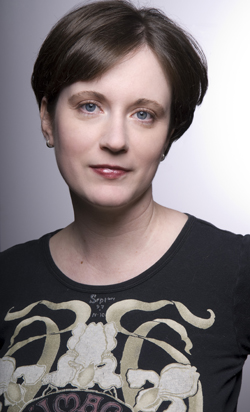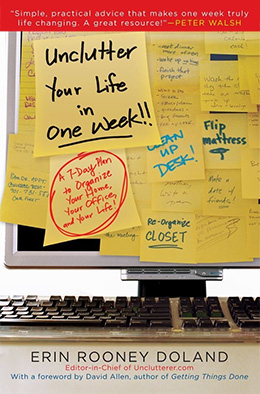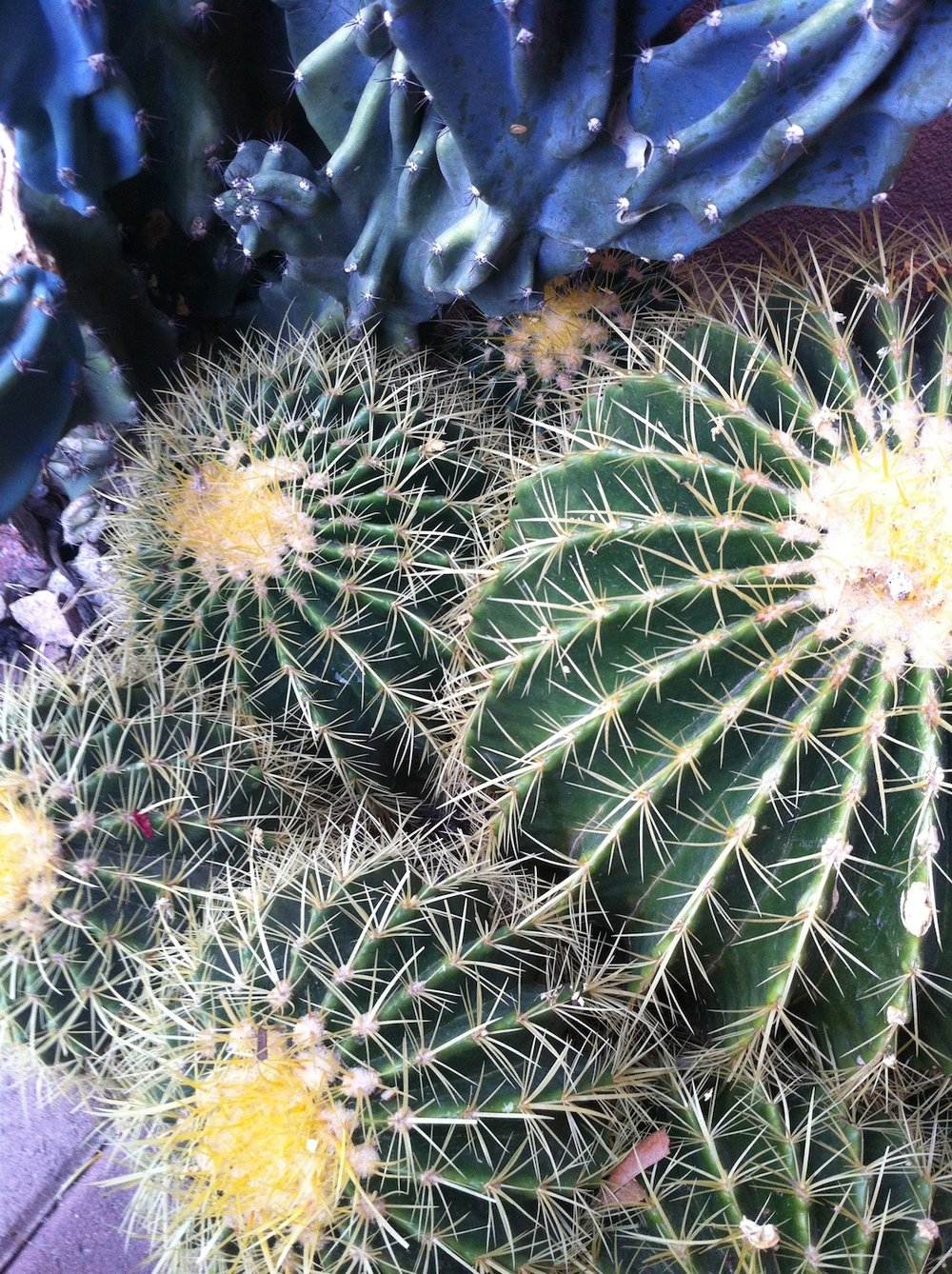 Our “Ask the Expert” interview series connects you with dynamic industry thought leaders. This year we’ve spoken with author Francine Jay about letting go, author Todd Henry about next steps, psychologist, Dr. Debbie Grove about change, and author Joshua Becker about fresh starts. For May, I’m excited to have with us organization expert and author, Erin Doland to share her insights about clutter.
Our “Ask the Expert” interview series connects you with dynamic industry thought leaders. This year we’ve spoken with author Francine Jay about letting go, author Todd Henry about next steps, psychologist, Dr. Debbie Grove about change, and author Joshua Becker about fresh starts. For May, I’m excited to have with us organization expert and author, Erin Doland to share her insights about clutter.
Erin’s book, Unclutter Your Life in One Week, shares a plan for quickly clearing your clutter and simplifying your life. As someone that was challenged by clutter, Erin shares from the perspective of someone that gained new skills, cleared her clutter and became more organized. My gratitude goes to Erin for joining us. I know you’re going to appreciate her unique perspective about clutter. Before we begin, here’s more about her.
 Erin Rooney Doland is Editor-in-Chief of Unclutterer.com, a website providing daily articles on home and office organization, and author of the book Unclutter Your Life in One Week. You can connect with Erin on Twitter, Facebook, Google+, Pinterest, website.
Erin Rooney Doland is Editor-in-Chief of Unclutterer.com, a website providing daily articles on home and office organization, and author of the book Unclutter Your Life in One Week. You can connect with Erin on Twitter, Facebook, Google+, Pinterest, website.
Linda Samuels: As an organization consultant, author, blogger, and speaker, you specialize in inspiring others to live an uncluttered life. What suggestions do you have for those that feel overwhelmed by clutter?
Erin Rooney Doland: Remember that being organized and living without clutter are skills, just like the skills involved in playing a sport. Sure, some people are naturally gifted, but being 6’7” doesn’t guarantee someone will play in the NBA. It takes practice to learn any skill and to maintain it. Just because life is chaotic now doesn’t mean it’s always going to be that way. With regular practice, you’ll eventually find order and you’ll discover the skills that work best with your personality and preferences.
Linda: In your book, Unclutter Your Life in One Week, you define an unclutterer as “Someone who choses to get rid of the distractions that get in the way of a remarkable life.” What are your favorite strategies for identifying and uncluttering distractions?
Erin: You need to define what a remarkable life is for YOU. What does it look like? How does it feel? There are many ways to discover your definition of a remarkable life – chart it out, draw it out, create a vision board, meditate on it, talk it out with a family or friend, write it down. Once you know where you want to go, it’s a lot easier to get there.
Linda: Some of us tend to accumulate more than we release. What makes it so challenging to let go?
Erin: There are as many reasons as to why we want to keep things, as there are items to keep. These multitude of reasons cross our minds whenever it comes time to part with something. We “just in case” and “should” ourselves into holding onto all our stuff. It’s a very natural human instinct that almost all of us possess. It’s not bad or good, it just is. Problems only arise when keeping things distract us from the life we desire.
Linda: What is your most surprising discovery about clutter?
Erin: I’m continually surprised by how an individual’s value of an object changes with time. One day, a pair of earrings can be your go-to piece of jewelry. You’re a little heartbroken if one earring goes missing from the pair. Two years later, the same pair of earrings is taking up space in your jewelry box and you wouldn’t even remember it was in there. The object hasn’t changed, but how you value it has. Changing perceptions is vital to the uncluttering process and how this value change comes about is fascinating to me. Ultimately, someone has to choose the life they desire over their stuff if they want to be uncluttered, but how they get there is different for everyone.
Linda: What has been your biggest personal challenge around clutter?
Erin: My challenges are constantly changing, but right now a lack of energy is my biggest challenge with clutter. I have an infant and a very active four year old. It has been five months since I’ve had a solid night’s sleep. What little energy I have is going toward the basic routines that have to be accomplished for our family to function. I see clutter coming back into our lives and I just keep reminding myself that when we all start sleeping better and our energy levels return, so will the order. Until then, I’m trying not to freak out about my crazy pile of filing and all the other distractions.
Erin, you’re in good company with other parents of young children and how sleep, or lack their of influences energy, functioning, and clutter levels. This circles back to your idea about living a remarkable life, which involves knowing your priorities. Your clarity is evident that sleep, basic routines, and raising the kids trump filing papers. Clutter has an ebb and flow. How we handle or reconcile those variations vary for each of us.
Please join Erin and me as we continue the conversation. Share your ideas about clutter, living a remarkable life, and discoveries. What are your thoughts?








